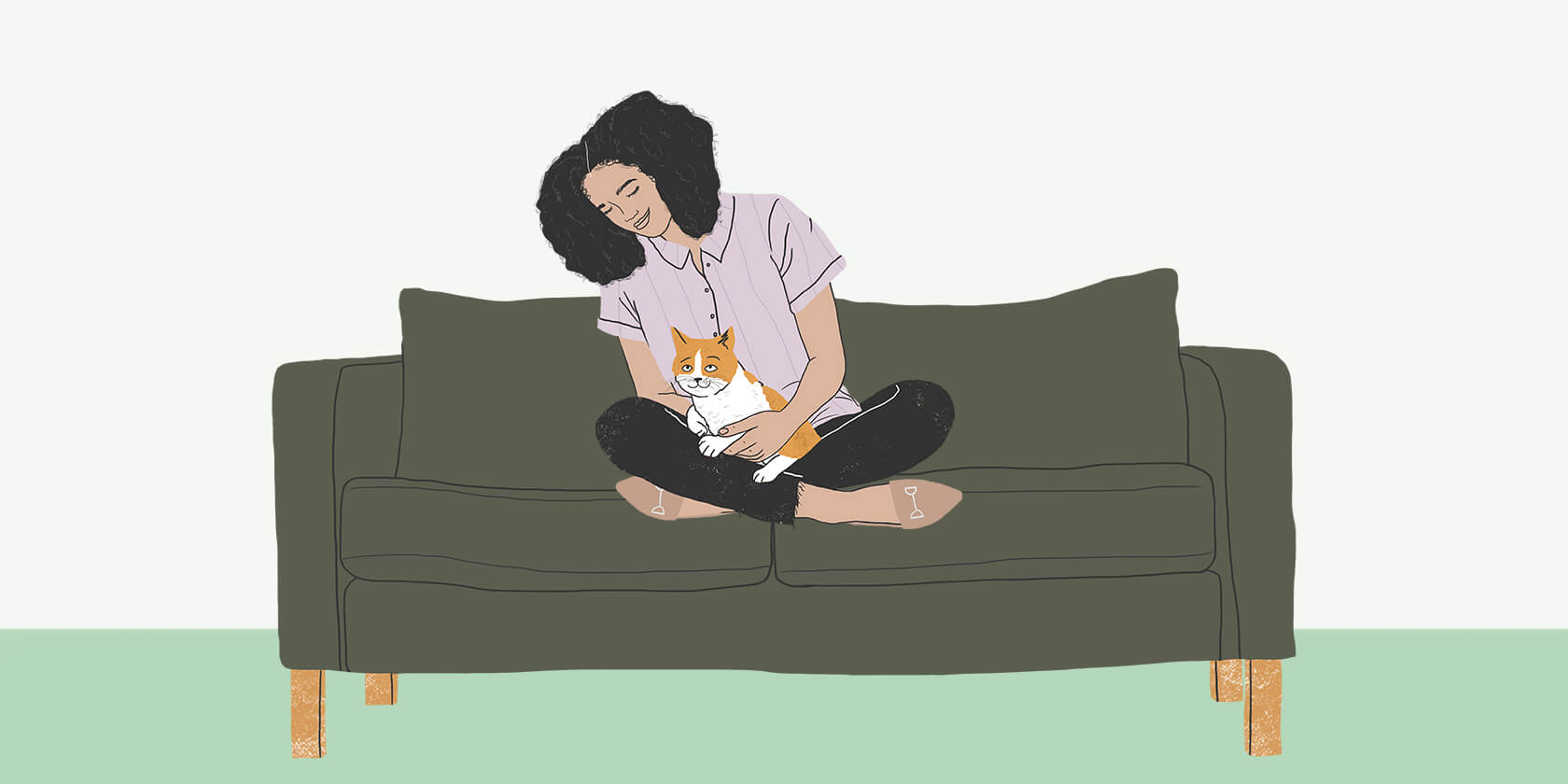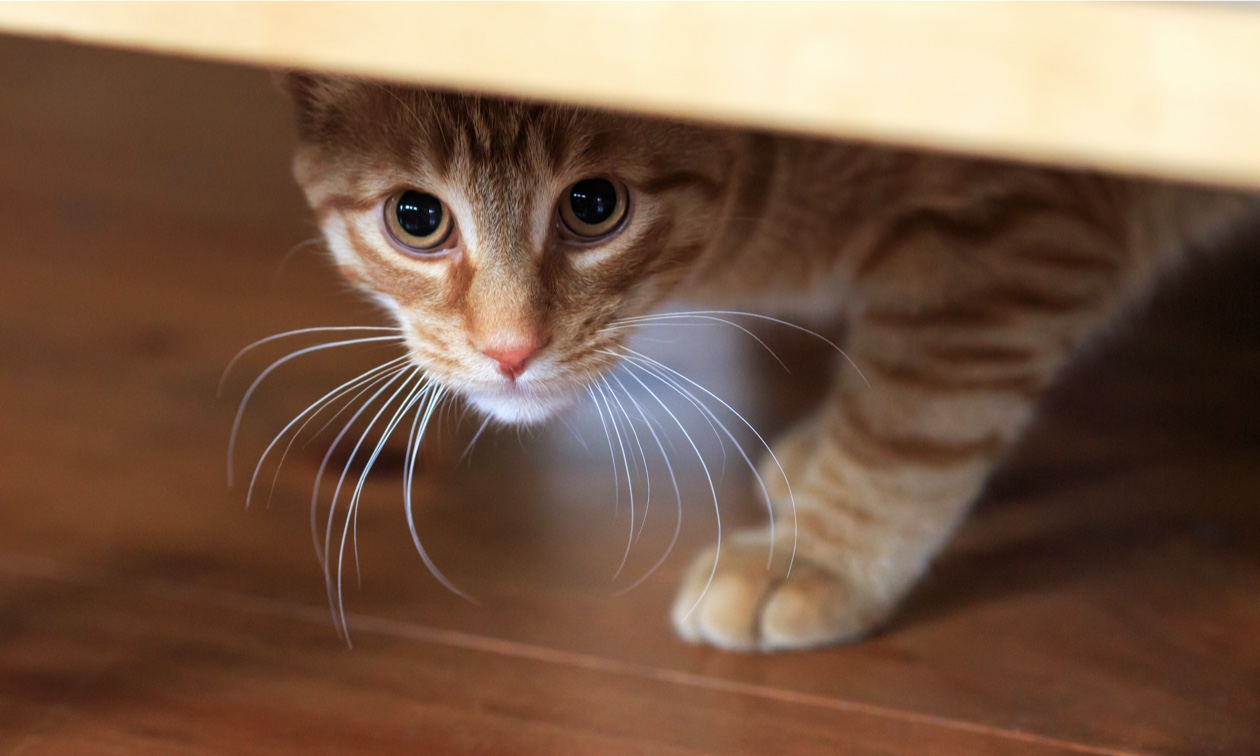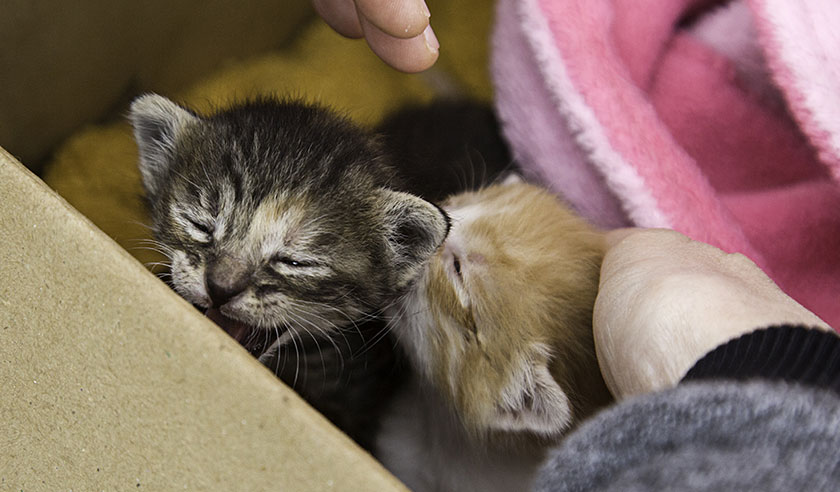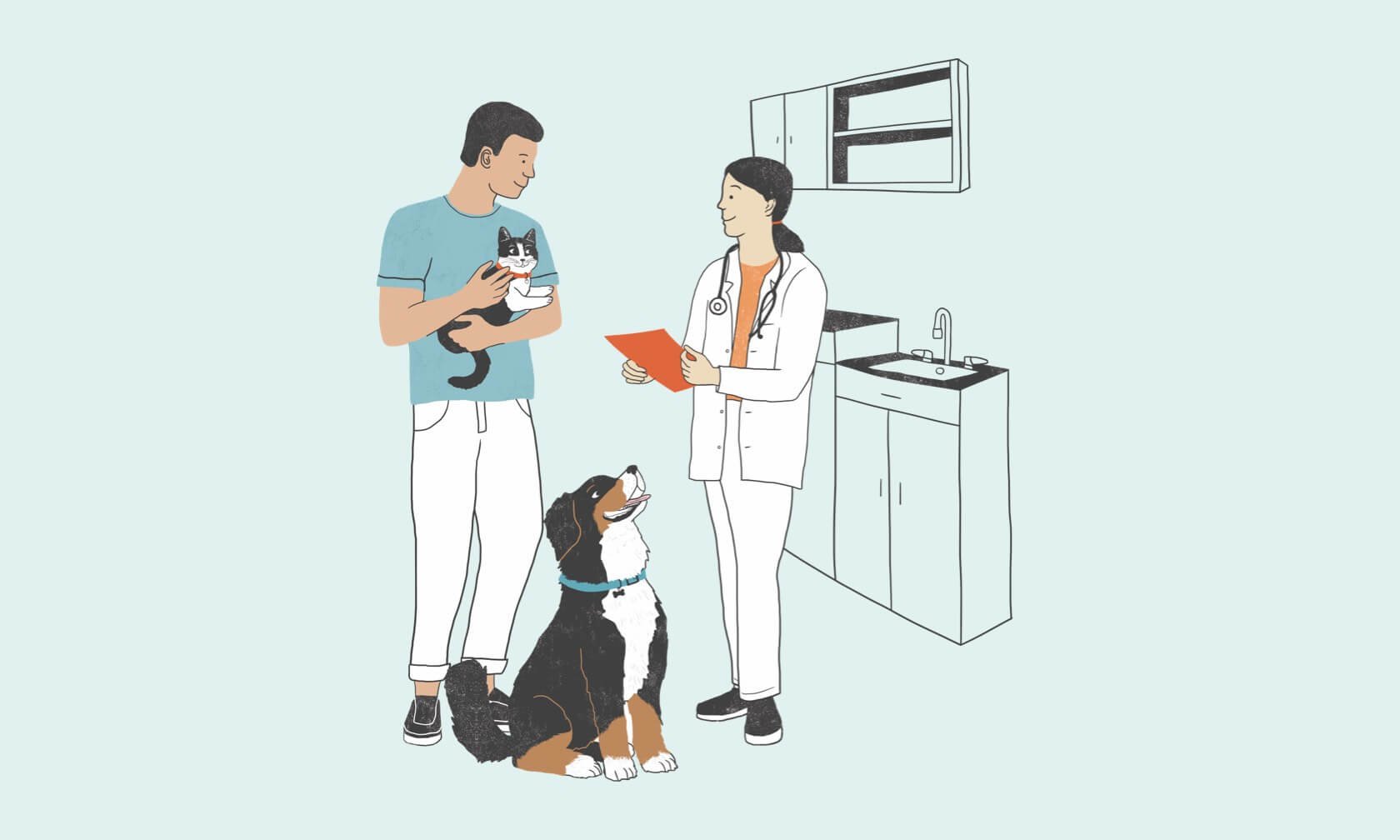Feline immunodeficiency virus (FIV) is an infectious disease that attacks a cat's immune system. It causes acquired immune deficiency syndrome (AIDS) in cats, resembling AIDS caused by the human immunodeficiency virus (HIV) in humans (although FIV cannot transmit to humans). In North America, a 2006 study of more than 18,000 cats found that 2.5% were positive for FIV[1].
FIV positive cats may appear normal for years, but their compromised immune system makes them more vulnerable to other infections. Normally harmless organisms found in the everyday environment, like bacteria, viruses, and fungi, can potentially cause severe illnesses. To obtain a diagnosis, testing is done using a small blood sample. A positive screening test is typically followed by a confirmatory test.

Common Clinical Signs of FIV in Cats
If an FIV-infected cat develops functional immunodeficiency (many do not), it often occurs years after they are infected by another cat. Common symptoms may include:
- Enlarged lymph nodes
- Poor coat condition
- Persistent fever
- Loss of appetite
- Inflammation of gums or mouth
- Chronic or reoccurring infections of skin, eyes, bladder, and the upper respiratory tract
- Persistent diarrhea
- Eye conditions
- Slow but progressive weight loss
If your cat shows any of the symptoms above, it is essential to have them tested for FIV by their veterinarian.
My Cat Has FIV, What Now?
Receiving the news that your cat is FIV positive can be difficult. Although FIV can be life-threatening, proper care and management can lead to a long, healthy life — allowing you and your cat to have many years of joy and memories together.
The following are some guidelines to assist in caring for a cat with FIV
- Have a physical examination performed at least every six months by your veterinarian.
- Monitor for any signs of weight loss.
- Have a complete blood count, biochemistry analysis, urinalysis, and fecal examination performed at least once a year.
- Spay or neuter your cat.
- Confine cats indoors to prevent the spread of FIV infection to other cats and to reduce exposure to disease-causing organisms.
- Control internal and external parasites like fleas, ticks, heartworms, and intestinal worms with a preventative medication.
- Feed a nutritionally complete and balanced diet.
- Avoid uncooked food, such as raw meat and eggs, and unpasteurized dairy products to minimize the risk of food-borne bacterial and parasitic infections.
- Monitor your cat's health and behavior very carefully – alert your veterinarian of any changes as soon as possible.
- Vaccine selection and immunization intervals for healthy cats with FIV infection should be based on individual risk assessments using the American Association of Feline Practitioners (AAFP) vaccination guidelines developed for cats in general. Your veterinarian will help you come up with a plan.
If your cat starts showing signs of illness, prompt and accurate diagnosis is critical for a successful treatment outcome. Many cats infected with FIV respond as well as uninfected cats to appropriate medications and treatment strategies, although a longer or more aggressive course of treatment may be needed.
Treatment for Cats with FIV
Unfortunately, there is currently no cure for an FIV infection. Although a significant amount of research is being devoted to developing effective treatment options for FIV, few extensive long-term controlled studies in naturally infected cats have shown long-lasting benefits of using antiviral drugs. These medications are limited and tend to show lower efficacy in feline patients compared with human patients[1]. Due to the lack of proven effectiveness, and their toxicity, antiviral drugs are indicated only in exceptional cases of FIV infection[2].
FIV-infected cats need special care and management, as described above. If they receive this management and care, they can live for many years in good health.
Is FIV Contagious?
FIV is cat-specific and can be transmitted from cat to cat, typically through bite wounds. Casual contact between cats, like grooming, poses little risk of acquiring FIV infections; however, a certain degree of risk remains. Transmission of FIV from a mother cat to her kittens or the spread of the virus via sexual contact is uncommon.
To limit transmission in a multi-cat household, the following is recommended:
- Test. Have all cats in the household tested for FIV.
- Confine. Infected cats should be confined indoors to prevent the spread of FIV infection to other cats and to reduce exposure to disease-producing organisms.
- Isolate. The best method of preventing spread to other cats in the household is to isolate the infected cat from interacting with housemates. However, the risk of transmission is low if the housemates do not fight.
If isolation is not possible or cannot be done, no new cats should be introduced into the household to reduce the risk of fighting.
Life Expectancy for Cats with FIV
Although the life expectancy of a given cat infected with FIV is highly variable and is impossible to predict, they can live normal lives for years if managed appropriately. Many succumb at an older age from causes unrelated to their FIV infection. Thankfully, many studies have shown that the survival time of FIV- infected cats can be similar to that of non-FIV infected cats[3].
ZPC-00896R1
- Little, S., Levy, J., Hartmann, K., Hofmann-Lehmann, R., Hosie, M., Olah, G., & Denis, K. S. (2020). 2020 AAFP Feline Retrovirus Testing and Management Guidelines. Journal of Feline Medicine and Surgery, 22(1), 5-30. doi:10.1177/1098612x19895940.
- Hartmann, K. (2015). Efficacy of antiviral chemotherapy for retrovirus-infected cats. Journal of Feline Medicine and Surgery, 17(11), 925-939. doi:10.1177/1098612x15610676.
- Liem, B., Dhand, N., Pepper, A., Barrs, V., & Beatty, J. (2013). Clinical Findings and Survival in Cats Naturally Infected with Feline Immunodeficiency Virus. Journal of Veterinary Internal Medicine, 27(4), 798-805. doi:10.1111/jvim.12120.





